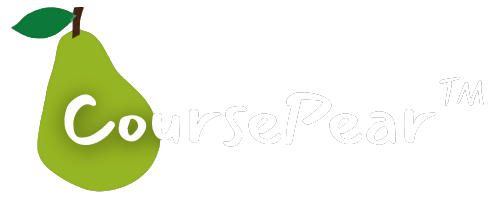🍐 我们总结了多伦多代写中——Essay代写的经典案例,如果你有任何History代写的需要,可以随时联络我们。CoursePear™ From @2009。
Toronto Met University – History Department
THIS IS A CLOSED BOOK EXAM — YOU MAY NOT REFER TO ANY SOURCES OTHER THAN YOUR MEMORY
Read the instructions carefully. Identify clearly what question you are responding to.
Identify and give the significance in short essay form of any three (3) terms in PART A. Connect as many valid and relevant ideas and concepts as possible to each term.
Respond in essay form to one (1) topic from PART B and one (1) topic from PART C. Give specific case examples as evidence for your arguments. Answer the question as presented.
Identify by number which lecture key term and which essay question you are responding to.
PART A. (30%) Identify and give significance in short essay form for any THREE (3) terms. Identify by number which term you are responding to:
- 1862 midterm elections
- New York City Fire Plot
- Confederate credit crisis
- “On to Richmond”
- attack-doctrine
- Anaconda Plan
- Battle of the Crater
- Niagara Falls Declaration
- Salmon P. Chase
- Andersonville P.O.W. Camp
- Sherman’s March (to the Sea)
- New York City Draft Riot
- doctrine of reattachment or reversion
- Minié Ball
PART B (35%): Answer any ONE (1) of the following essay questions giving specific historical examples:
1. Locate geographically, date, describe and discuss both the military and political significance of the outcome of one (1) of the following battles, as well as any other relevant socio-economic, strategic and/or cultural significance:
- Fredericksburg; or
- St. Albans Raid; or
- Vicksburg; or
- Atlanta
2. Contrast and discuss the impact on the outbreak and subsequent continuation of the Civil War in the context of candidates, issues, and party platforms of the two major US political parties (Republicans and Democrats) in the 1860 and 1864 Presidential elections.
3. Historian Barbara Fields says of the Civil War: “It is the event in American history that made the United States as a nation. The United States was obviously a nation when it adopted a constitution but it adopted a constitution that required a war [to sort it out], and therefore required a war to make a real nation out of what was a theoretical nation as it was designed at the Constitutional Convention.”
Discuss the US Constitution and its relationship to the descent of the United States into civil war. What were the problems in the constitution that needed to be “sorted out?”
4. Fredrick Douglass said of Lincoln after his assassination: “Viewed from the genuine abolition ground, Mr. Lincoln seemed tardy, cold, dull, indifferent; but measuring him by the sentiment of his country, a sentiment he was bound to consult, he was swift, zealous, radical and determined.”
Discuss Lincoln’s attitudes and policies towards slavery during his career as an Illinois Congressman and as President during the Civil War. Describe that “sentiment of his country” that Douglass refers to and Lincoln’s response to and handling of it as the nation’s wartime Executive.
5. Why did the total amount of casualties in the American Civil War exceed that of all the other wars combined in which Americans fought?
6. The Confederate government in Richmond was ironically forced by the war to adopt the very type of domestic policies against which they had rebelled when part of the U.S.A. Discuss what were some of the internal problems in the South caused by the war and how did the Confederate Congress and the President respond to them?
PART C (35%): Answer any ONE (1) of the following essay questions giving specific historical examples:
7. What distinguished the Civil War Union soldier “Billy Yank” from the G.I. of World War II according to Thomas E. Rodgers, “Billy Yank and G.I. Joe: An Exploratory Essay on the Sociopolitical Dimension of Soldier Motivation” and how does that difference contrast with the one between “Billy Yank” and the Confederate “Johnny Reb” in your own assessment.
8. Was the Civil War a “total war”? Discuss the evolution of the definition of “total war” and the historical debate on its use to characterize the American Civil War using examples to support your argument and how Mark E. Neely, argues it in “Was the Civil War a Total War?”
9. Discuss the argument that the Union and the Confederacy were “two distinct peoples” with both a unique culture, a unique way of fighting and distinct sociological differences described as “organic communities” vs. “organized societies”. Describe both the differences and the similarities between the two societies as argued in James M. McPherson
“Antebellum Southern Exceptionalism: A New Look at an Old Question” and discuss the argument Grady McWhiney makes on the “Celtic way” of fighting by the Confederacy and its impact on the outcome of the war.
10. Describe and assess some of the hardships faced by whites and African Americans in the former Confederate states during the Reconstruction period as described in Keith S. Hébert, The Bitter Trial of Defeat and Emancipation. Reconstruction has been described as “war by any other name” how so?
CoursePear™是一家服务全球留学生的专业代写。
—-我们专注提供高质靠谱的美国、加拿大、英国、澳洲、新西兰代写服务。
—-我们专注提供Essay、统计、金融、CS、经济、数学等覆盖100+专业的作业代写服务。

CoursePear™提供各类学术服务,Essay代写,Assignment代写,Exam / Quiz助攻,Dissertation / Thesis代写,Problem Set代做等。
